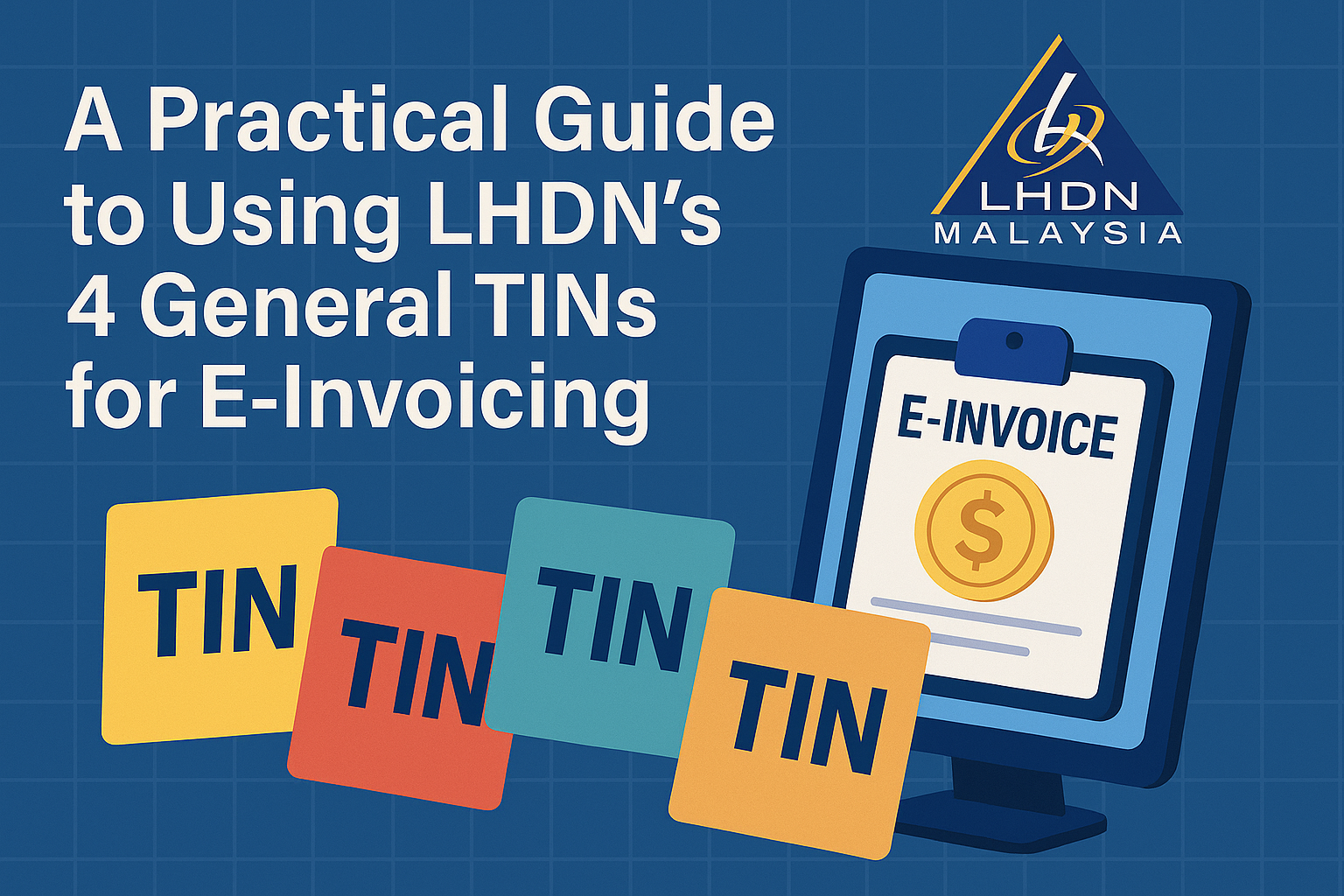As businesses across Malaysia adapt to the mandatory e-invoicing system, a common operational challenge has emerged: What do you do when the other party in a transaction—be it a member of the public, a foreign entity, or a government body—does not have or provide a Tax Identification Number (TIN)?
Since the TIN is a mandatory field, this can bring business to a halt. To solve this, the Inland Revenue Board of Malaysia (LHDN) has introduced four General TINs. These are special, pre-defined codes used as placeholders to ensure transactions can be processed smoothly. This guide will explain each of the four General TINs and when to use them.
A Detailed Breakdown of the 4 General TINs
Here are the four official General TINs and their specific use cases, as outlined in the latest LHDN guidelines.
1. General TIN: EI00000000010
- For: The General Public
- When to Use:
- (a) When issuing an e-invoice to a Malaysian individual who only provides their MyKad/MyTentera number but not their TIN.
- (b) As the “Buyer’s TIN” when issuing a Consolidated E-Invoice to summarize multiple retail sales for the month.
- (c) As the “Supplier’s TIN” when your business issues a Consolidated Self-Billed E-Invoice.
2. General TIN: EI00000000020
- For: Foreign Buyers / Foreign Shipping Recipients
- When to Use:
- (a) As the “Buyer’s TIN” when issuing an e-invoice to a non-Malaysian individual who only provides their passport or MyPR/MyKAS number.
- (b) In export transactions, when the foreign buyer’s TIN is not available or not provided.
- (c) As the “Shipping Recipient’s TIN” if the goods are being shipped to a foreign recipient whose TIN is not available.
3. General TIN: EI00000000030
- For: Foreign Suppliers
- When to Use:
- (a) As the “Supplier’s TIN” when you are issuing a Self-Billed E-Invoice for a purchase from a non-Malaysian individual who only provides their identification number.
- (b) In import transactions, when your foreign supplier’s TIN is not available or not provided, and you need to issue a Self-Billed E-Invoice to record the expense.
4. General TIN: EI00000000040
- For: Certain Bodies and Institutions
- When to Use:
- As the “Buyer’s TIN” when your transaction is with the following entities, which may not have a standard business TIN:
- Government (
Kerajaan) - State Government (
Kerajaan Negeri) - Government Authority (
Pihak Berkuasa Kerajaan) - Local Authority (
Pihak Berkuasa Tempatan) - Statutory Body (
Badan Berkanun) - Exempt institutions that have not been assigned a TIN.
- Government (
- As the “Buyer’s TIN” when your transaction is with the following entities, which may not have a standard business TIN:
Getting it Right Matters
Using the wrong General TIN or failing to apply these rules correctly can lead to rejected e-invoices, administrative delays, and potential compliance issues. It is crucial that your accounting or invoicing system is configured to handle these different scenarios correctly.
At SMONE, our Cloud Accounting & Digitalization service helps you navigate the technical details of e-invoicing. We ensure your system is set up to manage all types of transactions—whether with local individuals, foreign entities, or government bodies—using the correct procedures and TINs as required by LHDN.
Contact us today for an e-invoicing health check to ensure your business is fully prepared and compliant.
(Disclaimer)
This article is for general informational purposes. It does not constitute legal or tax advice. Please refer to the latest official guidelines and specific rulings from LHDN for complete information.


